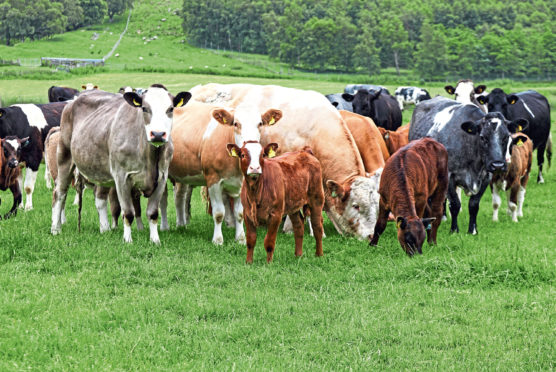It has been a rocky road for beef prices over the last couple of years but the latest Scottish calf registrations show a 5% rise on the year – and a growing number of them are native breeds.
Latest data from Quality Meat Scotland (QMS) shows native breeds account for almost 30% of registrations – an increase of almost 50% in the past decade – and they also confirm that more calvings than ever now occur in the first third of the year.
Meanwhile, QMS economist Stuart Ashworth has a mixed message in his weekly market commentary.
He points out the recent increase in beef sales through high street food stores and butchers has contributed to a firming in farmgate prices, although levy body AHDB’s weekly retail tracker has already indicated some slowdown in the growth of household spending on beef in June.
Mr Ashworth said: “The slow re-opening of food service adds competition for meat but may reduce supermarket requirements as people revert to old behaviours. Increased opportunities to spend money on leisure and recreational pursuits as the summer progresses could also bring challenges.
“Also hanging over the market is the future of furlough schemes as well as the potential growth in unemployment and reduced incomes that may bring.”
Turning to domestic demand for fresh and chilled beef in the summer holiday period of July and August, Mr Ashworth predicts confusion in the market this year but suggests that if overseas trips by UK travellers are curtailed, then despite a reduction in overseas visitors, red meat demand should remain firm.
